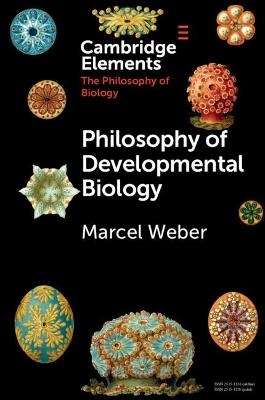
Philosophy of Developmental Biology
Seiten
2022
Cambridge University Press (Verlag)
978-1-108-94935-4 (ISBN)
Cambridge University Press (Verlag)
978-1-108-94935-4 (ISBN)
Taking a causal perspective, this Element examines to what extent and how developmental biology, having turned molecular about four decades ago, has been able to meet the vitalist challenge. This title is also available as Open Access on Cambridge Core.
The history of developmental biology is interwoven with debates as to whether mechanistic explanations of development are possible or whether alternative explanatory principles or even vital forces need to be assumed. In particular, the demonstrated ability of embryonic cells to tune their developmental fate precisely to their relative position and the overall size of the embryo was once thought to be inexplicable in mechanistic terms. Taking a causal perspective, this Element examines to what extent and how developmental biology, having turned molecular about four decades ago, has been able to meet the vitalist challenge. It focuses not only on the nature of explanations but also on the usefulness of causal knowledge – including the knowledge of classical experimental embryology – for further scientific discovery. It also shows how this causal perspective allows us to understand the nature and significance of some key concepts, including organizer, signal and morphogen. This title is also available as Open Access on Cambridge Core.
The history of developmental biology is interwoven with debates as to whether mechanistic explanations of development are possible or whether alternative explanatory principles or even vital forces need to be assumed. In particular, the demonstrated ability of embryonic cells to tune their developmental fate precisely to their relative position and the overall size of the embryo was once thought to be inexplicable in mechanistic terms. Taking a causal perspective, this Element examines to what extent and how developmental biology, having turned molecular about four decades ago, has been able to meet the vitalist challenge. It focuses not only on the nature of explanations but also on the usefulness of causal knowledge – including the knowledge of classical experimental embryology – for further scientific discovery. It also shows how this causal perspective allows us to understand the nature and significance of some key concepts, including organizer, signal and morphogen. This title is also available as Open Access on Cambridge Core.
1. Introduction: From Mechanism to Vitalism and Back; 2. Useful Causes: The Quest for Inducers and Organizers; 3. Idealized Causal Concepts as Research Tools: Morphogens; 4. Causes in Harmony; 5. Epilogue: Understanding, Progress, and Manipulability; References.
| Erscheinungsdatum | 01.02.2022 |
|---|---|
| Reihe/Serie | Elements in the Philosophy of Biology |
| Zusatzinfo | Worked examples or Exercises |
| Verlagsort | Cambridge |
| Sprache | englisch |
| Maße | 152 x 229 mm |
| Gewicht | 140 g |
| Themenwelt | Geisteswissenschaften ► Geschichte |
| Geisteswissenschaften ► Philosophie | |
| Naturwissenschaften | |
| ISBN-10 | 1-108-94935-5 / 1108949355 |
| ISBN-13 | 978-1-108-94935-4 / 9781108949354 |
| Zustand | Neuware |
| Haben Sie eine Frage zum Produkt? |
Mehr entdecken
aus dem Bereich
aus dem Bereich
eine kleine Soziologie des Heavy Metal
Buch | Softcover (2023)
Kohlhammer (Verlag)
20,00 €
Projekte, Visionen, Luftschlösser
Buch | Hardcover (2023)
Lehmstedt Verlag
30,00 €


